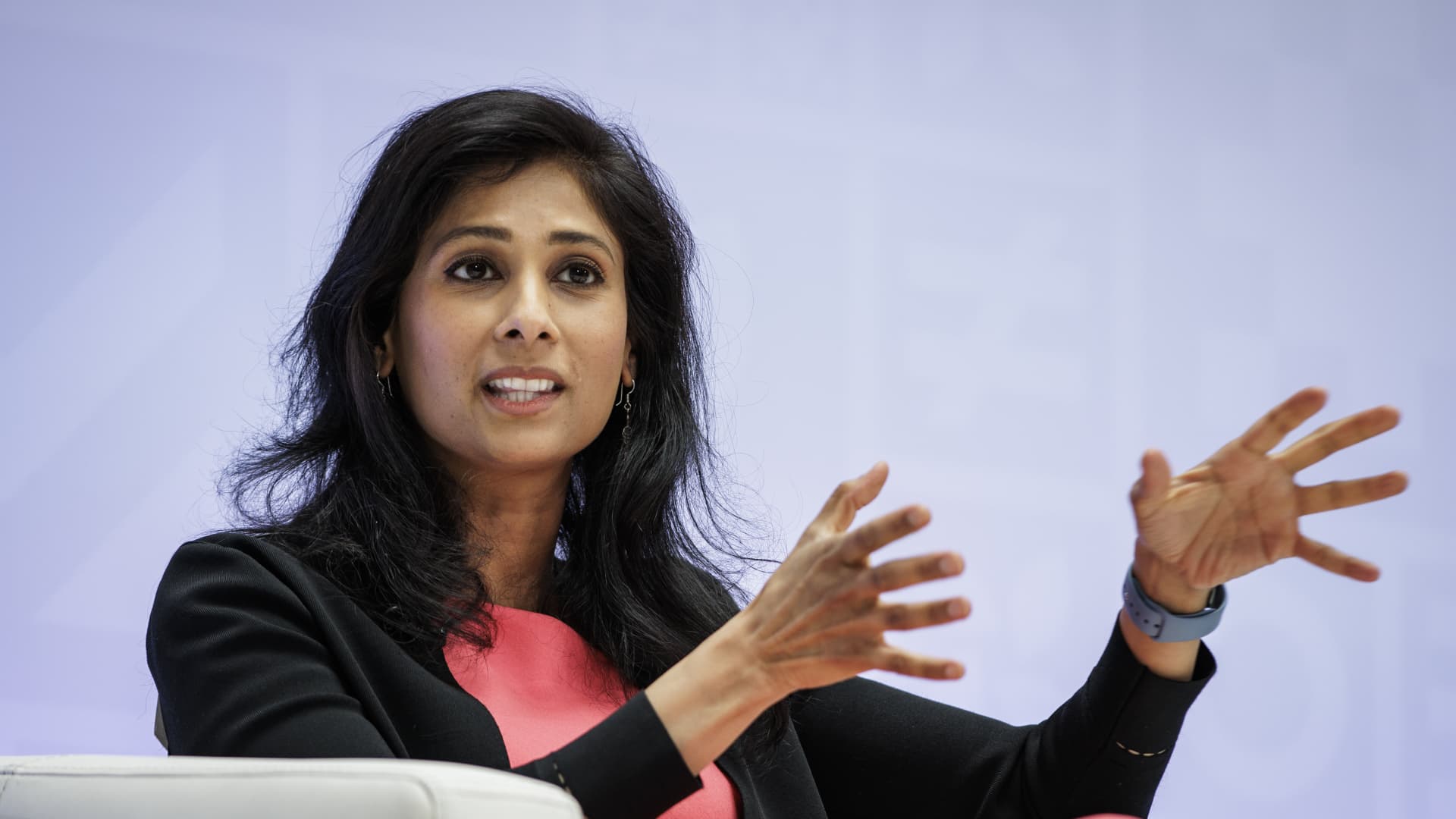Major central banks will have to keep interest rates high for much longer than some investors expect, Gita Gopinath, first deputy managing director of the International Monetary Fund, told CNBC Tuesday.
“We also have to recognize that central banks have done quite a bit … But that said, we do think they should continue tightening and importantly they should stay at a high level for a while,” Gopinath told CNBC’s Annette Weisbach at the European Central Bank Forum in Sintra, Portugal.
“Now this is unlike, for instance, what several markets expect, which is that things are going to come down very quickly in terms of rates. I think they have to be on hold for much longer,” she said.
The ECB began raising rates in July 2022 and has increased its main rate from -0.5% to 3.5% since then. The U.S. Federal Reserve, meanwhile, embarked on a hiking cycle in March 2022 but opted to pause this month, diverging from Europe. Nonetheless, Fed Chairman Jerome Powell has suggested there could be at least two more rate hikes this year.
A survey of U.S. economists in late May showed they had pushed back their expectations for the Fed to cut rates from the final quarter of this year to the first quarter of 2024. In a note to clients on Friday, Nomura said it expects both the ECB and the Bank of England to announce rate cuts in about a year’s time.
However, for the IMF it is clear that reducing inflation needs to be the absolute priority.
“It is taking too long for inflation to come back to target that means that central banks will have to remain committed to fighting Inflation even if that means risking weaker growth or much more cooling in the labor market,” Gopinath said.
In the case of the ECB, the central bank raised its expectations for inflation in the euro zone at its last meeting in June. It now expects headline inflation at 5.4% this year, at 3% in 2024 and at 2.2% in 2025.
Gopinath described the current macroeconomic picture as “very uncertain.”
Goldman analysts said in a note on Friday they expect the Fed to make the first rate cuts in the second quarter of next year and the ECB in the final quarter of 2024.
Speaking to CNBC’s “Street Signs Europe” Tuesday, Frederik Ducrozet, head of macroeconomic research at Pictet Wealth Management, said it simply comes down to the fact that we don’t know “when enough will be enough” when it comes to rate increases.
Meanwhile, ECB Governing Council member Mārtiņš Kazāks also told CNBC he believed markets were pricing in cuts too early.
“Currently I think the markets are making the mistake of thinking the rates will come down much, much quicker, which in my view is inconsistent with the baseline we currently have,” Kazāks said at the Sintra Forum.
“First off, next year is way too early. I would see personally for rates to start coming down, for rate cuts to be necessary, is only when we see that inflation does significantly and persistently fall below our target of 2%.”



